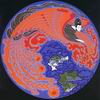Posts posted by NavajoEverclear
-
-
my dignity doesn't want me to admit defeat, and so i wont. i will however confess the obvious, that i indulged in ignorance, consequently damaging my value of credibility. I still think the number means something, because from my knowledge base it appears too large a coincidence to be otherwise. I know that might not be a terribly expansive area, but i don't know where to start to proove it either way. Since no one here manifested knows either, and no progress is being made, i think the discussion should be ended.
-
before i sound like a hypocrit for not listening to you when i asked you to listen to me, i'll point out i just realized that mezarashi's list is not a six degrees of seperation type thing. They are simple isolated relationships. However i still tend to believe that the Sun, Moon, Earth thing is more significant. I give up tho, this is all a waste of time.
-
mezarashi, i'm not being defensive, i'm just frustrated that people aren't thinking very hard. AND you just prooved my point about mining. Your relationship had six steps to it, like 6 degrees of seperation, fun game by the way. It took effort to figure that one out. My fact on the other hand has what, one, maybe two steps?
The fixation on how it can't be coincidence and that there must be meaning to it is a trait that some people have that ensures cults and con artists will never go away.IDIOT! i'm not trying to start some cult. I think i said something like that somwhere, i'm sure there is a perfectly scientific explanation for the relationship, just asking if anyone knew what it was.
If you are so positive this is just data mining with no relevance, show me how the numbers are not unique. Show me how they are very common and meaningless. I'd really be fine to accept such an explanation if you could actually show it to me.
-
dude, you aren't listening to me. I've heard the term. That applies when you find some obscure relationship, which of coarse you'd use some type of logic to justify and stupid people would buy into it. This is not obscure. Trust me i feel really stupid repeating this again but i'm going to do it again anyway.
The moon and the sun are 108 times their respective diameters distanced from the Earth.
That is not data mining. Mining means you have to search for it, you have to dig. There is nothing to dig through. I'm not saying its supernatural or that we should worship ancient Hindus for discovering it. It is what it is and it is clearly coincidence too large to be written off (even though you are trying to) as concieved of some bogus method. It has to correlate with something.
-
i wonder if there is a particular day in which both values are even closer to being precisely 108. It would be whenever we are a little farther from the sun, and the moon is a little closer to us. I dont know how the orbits work so i dont know when this would be except i dont think it would be in the summer
-
well i definately see what you are saying, i know you can use obscure relationships to appear to proove anything, but i'd say that this example sounds pretty relevant. They aren't some weird equation pulled out that you really have to work for to extract, its incredibly simple. Both the Sun and the Moon are aproximately 108 times their diameter away from the Earth. It seems it must mean something
-
The Sun is about 108 times its diameter from the Earth (107.7) and the moon is about 108 times it's diameter from the Earth (110.7) . . . . according to my calculations. As a site note, 108 is a sacred number in Hinduism, i do not recall if this was before or after such calculations.
Why is this number as it is? Is it a coincidence, or is there a particular reason within the laws of physics? Is some relationship about this number related to why Earth is conducive to life?
-
-
I was reminded of an interesting fact (?) when i was reading some psycho's claim here that Muslims knew the speed of light. I'm not puting my thing in the religious section, because the origin of my question is only a sidenote, my ultimate pondering is only scientific.
Now though you're going to think i'm just an idiot because i cannot refind the source and precise wording of my fact in inquiry, so i hope you can figure out what is going on.
A sacred Hindu number is 108. This number is aproximately how many times the moons diameter that it is from the Earth, AND how many times the Earth's diameter it is from the sun. Either that or its was how many times the sun's diameter it is from earth, or it all could have been the circumfance, or the radius. It could all be figured out by dividing or multiplying by some fraction or multiple of Pi.
My question is then why is this have such a relationship?
And now i'm going to go try to figure out what the proportions even where, but i'm not going to edit my post just cause i think my confusion is funny.

Moon/Sun and 108
in Other Sciences
well it hasn't really changed, i'd still kinda like to know, but since it doesn't appear that's happening i just wanted to end the useless arguing.